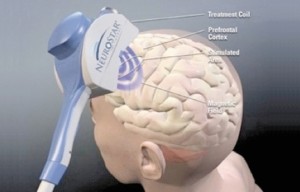By Dr. Kristie DeBlasio, Advanced Mental Health Care –
 Although bipolar disorder would appear to be an illness that is easily recognized and diagnosed, it is often overlooked in patients. Bipolar disorder is characterized by shifts in mood that alternate between depression and mania or hypomania. These mood shifts are more intense than what people typically experience and cause significant distress in major areas of functioning, including social, family, and occupational domains, among others. People can even suffer from the disorder for several years before it is properly diagnosed and managed, as it can be difficult to recognize the pattern and signs that indicate someone is entering into a depressive or manic phase.
Although bipolar disorder would appear to be an illness that is easily recognized and diagnosed, it is often overlooked in patients. Bipolar disorder is characterized by shifts in mood that alternate between depression and mania or hypomania. These mood shifts are more intense than what people typically experience and cause significant distress in major areas of functioning, including social, family, and occupational domains, among others. People can even suffer from the disorder for several years before it is properly diagnosed and managed, as it can be difficult to recognize the pattern and signs that indicate someone is entering into a depressive or manic phase.
A recent article published in the Archives of General Psychiatry indicated that especially when patients are in the depressive episode of bipolar disorder, it might be falsely assumed that they are suffering from Major Depressive Disorder. Many people are also less familiar with the term “bipolar depression,” which is the name used to describe symptoms when a person is in the depressive phase of the cycle. Some have reported that the depressive phase has a greater impact on functioning, as episodes last longer in duration and the effects take longer to recover from. Specifically, relationships often become very unstable during this time and long-term rates of unemployment are very high, as patients are unable to work. Additionally, there are increased rates of substance abuse as patients chose to self-medicate to ease the lows of the disorder.
The costs associated with untreated bipolar depression are considerable. Thus, it is very important for both patients and treatment providers to not only appropriately assess and diagnose the condition, but also important to manage its negative effects. Effective treatment strategies, such as medication and psychotherapy, can help patients with bipolar disorder achieve these goals in a healthy way. Additionally, treatment modalities such as Transcranial Magnetic Stimulation may help patients manage their bipolar symptoms.
Although TMS is currently only FDA approved for the treatment of Depression, there is substantial evidence that supports its efficacy in the treatment of other disorders, such as Bipolar Disorder. Several clinical studies are currently active, including the Brainsway multicenter clinical trial to evaluate the efficacy of its Deep TMS device. The unique technology used is based on patents filed by the U.S. National Institute of Health (NIH) and Brainsway, who holds an exclusive license from the NIH. Our practice is currently accepting patients into the trial, so please contact us for further information.
(561) 333-8884
www.advancedmentalhealth.com
Check Also
The Latest Technology With Hearing Aids
Many modern electronic devices these days come equipped with Bluetooth technology. This feature lets you …
 South Florida Health and Wellness Magazine Health and Wellness Articles
South Florida Health and Wellness Magazine Health and Wellness Articles




